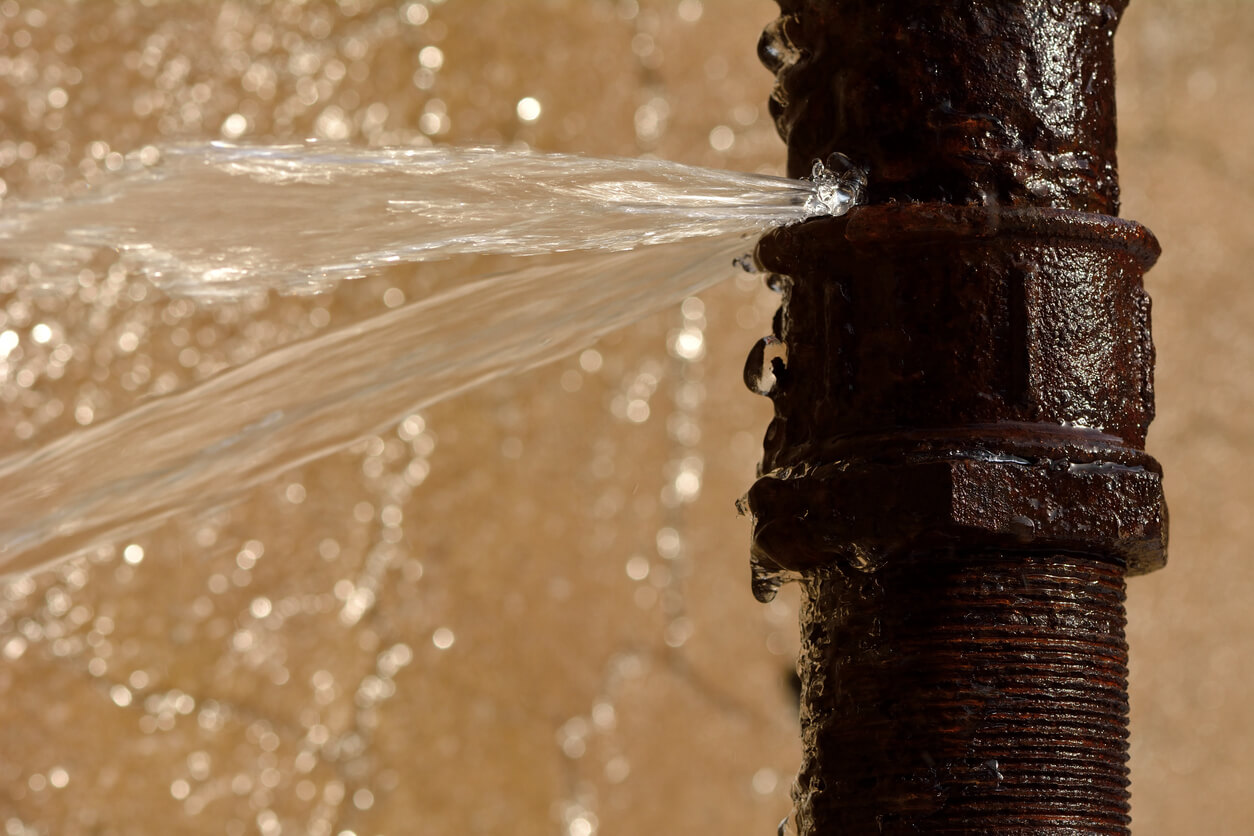There are a lot of things that can, unfortunately, cause water damage to your property. This can include everything from a toilet that overflows to a leak in your roof, or even widespread flooding. But regardless of the cause of your water damage, understanding what to do when it happens is most important.
If left untreated, not only can water damage continue to cause further damage, but it can also cause serious threats to your health. You’ll know if the water damage in question is putting you at immediate risk depending upon the type of water damage, whether the water is touching anything electrical, and whether you notice any signs of mold. There are three types of water damage: 1) clean; 2) grey; and 3) black.
Category 1: Clean Water Damage
Category 1, clean water damage, is the least serious of the three types of water damage. Clean water damage includes things such as broken water supply lines or pipes, appliance issues, or sinks or bathtubs that have overflowed. This type of water damage is referred to as “clean,” because it is free from toxins and sewage. Clean water damage can usually be handled by drying out damaged items and does not generally pose side effects for the owner of the property in the future.
Category 2: Grey Water Damage
Category 2, grey water damage, is a bit more severe. Grey water comes from things such as sump pump backups, washing machines, and toilets. Although direct contact with this type of water may not be immediately harmful, it’s vital that you remove and disinfect any affected items from the home. This is because the nature of this type of water can prove harmful in the future.
Category 3: Black Water Damage
Category 3, black water damage, is the most serious type of water damage and it requires that you take immediate action to minimize the chances of becoming seriously harmed by it. Black water includes seater, river water, ground water, rising flood waters, and sewage. Any items that have been impacted by black water damage must be immediately removed from the property, dried, and substantially disinfected.
It’s important to understand what is – and is not – covered under your property insurance coverage. The following is most likely not covered under your plan:
1. Flood Damage
Without specific flood insurance, standard policies will not cover any damage due to a flood.
2. Mold Damage
Mold often occurs when you neglect to clean up water damage properly. When this is the case, damage caused by mold will not be covered under your plan.
3. Gradual Water Damage
Gradual water damage is damage that occurs slowly over time, such as paint chipping off of the wall.
If you see signs of water damage within your property it’s imperative that you report it to your insurance company right away. Many insurance companies will often use any delay in reporting damage as a reason for denying your claim.
Be sure to take photos and video of any damage before taking steps to fix the problem. Ensure that you maintain any receipts from repairs or items to keep a record of all related expenses.
Your insurance company will send out an adjuster to look at your property and survey the damage. He or she will also assess whether your claim should be granted and if so, you will receive compensation. If your claim is denied, remember that you have the ability to appeal the decision. A qualified Rhode Island water damage attorney can help you to file a lawsuit and prove your case – whether the first or second time around.
PALUMBO LAW Helps Those in Rhode Island with their Water Damage Claims
When you are already stressed and dealing with paying to fix damage in your home caused by water, the last thing that you want to have to worry about is a damage claim denial. That’s where a qualified property damage attorney, specializing in water damage, can help.
At PALUMBO LAW, our experienced Rhode Island Property Insurance lawyers work strategically to help our clients to get what they deserve. We have deep experience working with insurance companies and understand how to deal with them. If you are planning on filing a water damage claim, or if you have already filed your claim and been denied, we can help. To learn more or to schedule a free consultation, call us today!


